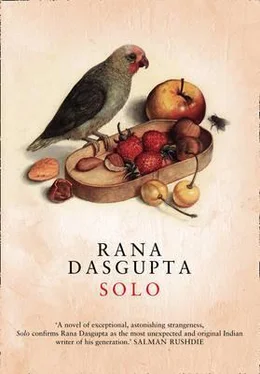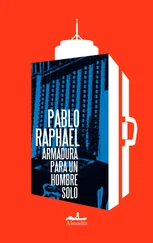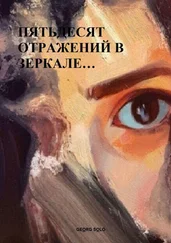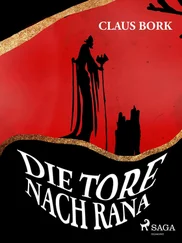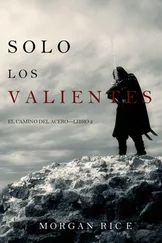Boris grins. Plastic says,
‘You can smile now because you don’t know anything, and your talents are screaming to be let out. It won’t be the same for ever. Most people of your generation lose their way when they hit thirty-five. While they sit in their jacuzzis wondering how they ever did what they did, the system spits them out.’
He adds,
‘You should have heard me play piano when I was your age.’
Irakli opens the door of the parrot cage. The bird steps off the parapet and flutters across the kitchen, alighting on a chair.
‘ Good morning ,’ it says, though the day is quite over. It looks Irakli over with avuncular concern.
He has sat all day with his pen and notebook, but he has not a single word to show for it.
Irakli has always lived among visions, which come to him just like memories of the womb return sometimes before sleep. Under their influence, he feels his hands as big as planets in the absolute night, and hears the postponed echo of ancient sea monsters. Khatuna looms there, unseparated from him, and the horrors of the world are turned inside out. Beyond his nose, and impossibly remote, great spheres pass through each other, weightless and incandescent.
Since he met Boris, these visions have departed, and Irakli has become listless and depressed. He sits in the house day after day doing nothing. He tries to unstop himself with alcohol, but it does nothing to help.
Khatuna is getting irritated with him.
‘It’s like living with a corpse,’ she says. ‘You used to make me laugh. Now you’re always morose. I get depressed just seeing you.’
She tells him it’s time to give up this writing. Your fucking poetry! she says every day. She tells him how he should improve himself, and buys him presents — a biography of a famous CEO, a gold case for business cards — that are designed to draw him out of his slump. Irakli does not pretend to be grateful. She gives him a designer pen holder to stand upon his desk, and he fills it with vodka and empties it down his throat. He says,
‘I was born for one thing. When I’m on my deathbed there is only one thing I will look back on and feel proud of.’
He does not know how to speak to Khatuna any more. She is cynical, and takes pleasure in the humiliation of everyone around her. She says things like retooling, benchmarking and value-add . She meets many people at parties with Plastic and all she can say about them is how many dollars they are worth.
Today, it is late, and Khatuna is still not home. Irakli proffers some seeds to the parrot, which it eats messily, dropping husks on the floor. It sings some lines from a Russian pop song that Khatuna likes and rounds off with the beep beep of the microwave. It says, Come to Irakli! and Make a cup of tea! — which is a phrase it learned before it arrived in this house.
Irakli sits down to write a letter to his mother. The worse he feels, the brighter and more effusive his letters become. He tells her his book is going well. The parrot dribbles on the paper. Irakli writes more often to his mother than she to him. Her letters are brief. She has stopped drinking and is cutting hair in a salon. He has sometimes found bits of her customers’ hair between her pages.
Irakli addresses the envelope and puts the parrot back in its cage. It says Goodnight! , alternating between Khatuna’s voice and his own. Its imitation of voices is uncanny, and both Irakli and Khatuna are surprised now and then by ventriloquist visitations of the other.
Irakli picks up his umbrella and leaves the house. As he walks he sees the new zombies let loose in the street: the radio-wave imbeciles with wires in their ears, talking to the beyond. He sees the curving aerial highways, braided in concrete, and smooth-moving at this hour. He sees bars on street corners, and crowds outside packed into the electric glow. He sees helicopters overhead, and night markets. He sees the messages on fluorescent paper on the walls. UNDER THE WEATHER? If you’re fading, call us now. A friendly voice changes everything .
Irakli has begun to feel despondent in this city. He talks wistfully about Tbilisi, but Khatuna cuts off this line of thought.
‘There is still danger for us there,’ she says.
But he is not sure whether she really believes it.
He arrives at Universal Studios, and waits outside until Boris comes down. He fills in the time with a can of Coke, and makes notes of things around him. He sees an old man checking the slots in the phone booths to see whether any coins have been left behind. He sees a woman sprinting past him in high heels, holding her breasts against the jolts.
Boris comes down the steps and puts his arm around his friend.
‘We just finished a track,’ he says excitedly as they walk down the street. ‘It sounds really good.’
He ducks into a store to buy a chocolate bar and proposes they go to a late show at the cinema. It is his favourite place to talk. They walk quickly to get there in time, cutting the corners of the blocks to try to force a diagonal through the right-angle city. Boris has become formidable while recording this album, and people look at him as they walk. Some of them he greets and shakes by the hand: Irakli is always amazed how many people he knows.
‘Some Russian sailors I met once,’ explains Boris.
They buy tickets for the movie and settle down with a tray of nachos. Boris eats loudly and tells stories. He tells Irakli about the book he is reading. He has found gems he never dreamed of in Plastic’s library, and he is reading a new book every day. Today’s title is Robinson Crusoe , and Boris has found incredible revelations in it.
‘You have to read this book! He describes thoughts exactly as they are, thoughts you didn’t know there could be words for.’
He is full of his reading. He quotes entire paragraphs by heart so Irakli can admire them. He asks about Irakli’s poetry. Irakli tells him he is not writing anything right now. When Boris asks what he has done with his day he makes up a story of idleness — though this is belied by the exhaustion in his face.
The movie begins, a staccato symphony of grunts and gunshots. They are blanched in its glow. Boris says,
‘Will you write something for me? The tracks on my CD need titles. You’re the only one who can put my music into words.’
‘I don’t know if I can.’
Boris is irritated.
‘Why are you always so dismissive of yourself? I’ve read your poetry. I know how you write. I know what you say about my music, and how much you inspire me. Remember how you danced that night? Write like that.’
At that moment their conversation is shushed by a woman who is trying to record the movie off the screen with a video camera.
‘I’m getting your voices on the audio track,’ she complains.
They apologise, get up and leave the cinema. They buy some vodka and go back to Boris’s apartment.
These days, Boris’s energy is irrepressible, and he refuses to sleep. He gets out his violin and plays to Irakli every phrase from the day’s recording, asking him what he thinks. His head is coursing with music, and it keeps Irakli up all night, so he is useless the next day.
Khatuna thinks it’s funny that Plastic’s leather shoes creak as he walks. How can you stand it? she exclaims.
She crouches by his chair, undoes his laces and takes the shoes off his feet. She finds she can fit into them with her own shoes still on.
‘Your feet are so big!’ she says.
She marches up and down the concrete floor of his loft, his shoes clunking on her feet. He is irritated.
‘You’ll spoil them, for God’s sake. Those are fifteen-hundred-dollar shoes.’
Читать дальше
Конец ознакомительного отрывка
Купить книгу
